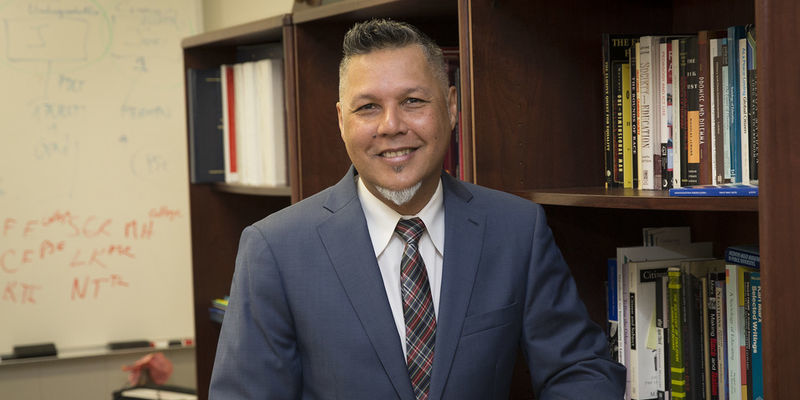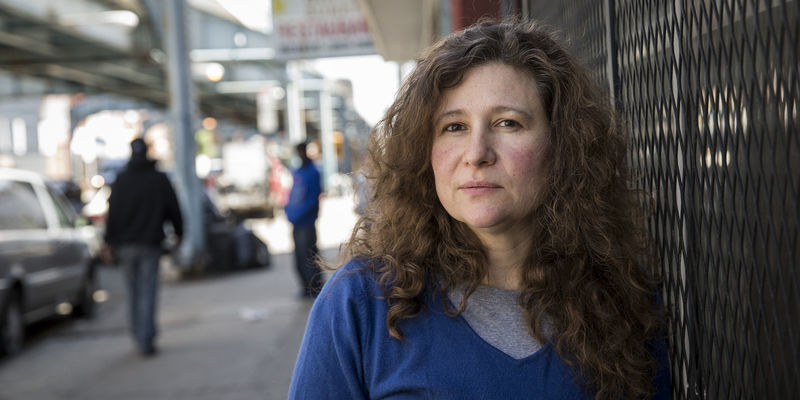Resources for facilitating meaningful change
Learn how you can take action and take care of yourself in light of recent protests fueled by racial injustice.

Black Lives Matter at Temple University—and everywhere in this world. Right now, so many in the Temple community are eager to take action. Here are some resources for helping you take meaningful steps toward change, including necessary self-care.
Speak up for yourself, your peers and your community.
If you believe you have been the victim of racial discrimination or harassment at Temple, you can contact our Equal Opportunity Compliance office, which is the focal point of Temple's institutionwide efforts for equal opportunity, equal access and affirmative action.
Temple’s Office of Ethics and Compliance operates an Ethics and Compliance Helpline. The helpline is a 24-hour, confidential communication channel hosted by EthicsPoint. It provides a resource for confidentially asking questions or submitting reports relating to violations of applicable law or university policies, standards or procedures. You can submit reports confidentially or anonymously online or by phone 24/7, 365 days a year.
Another resource for students is the CARE Team. Offered through the Division of Student Affairs, the CARE Team responds to students who may be exhibiting concerning behavior.
If you’ve observed what you believe to be discrimination or harassment happening to someone else, these resources can also help you. If you see something, say something.
Beyond our campus community, make an impact by speaking to your elected representatives. In Philadelphia, five Owls sit on City Council and Malcolm Kenyatta, KLN ’12, is a representative in the Pennsylvania House of Representatives.
Take advantage of resources and training sessions.
Temple’s Office of Institutional Diversity, Equity, Advocacy and Leadership (IDEAL) offers a range of diversity education resources, from facilitated group conversations with peers to training on how to lead discussions around diversity and inclusion. Through IDEAL, you can request workshops for your campus group on a number of topics, such as how to create an inclusive work environment or how to respond to implicit or unconscious bias.
Tuttleman Counseling Services and the Employee Assistance Program (accessed through TUportal) are both well-being resources with virtual options and online tools available at any time.
Attend an event or a virtual exhibit.
IDEAL is holding a virtual event to address self-care in a time of racial trauma on June 4; and the Wellness Resource Center is offering a virtual workshop about activism as a form of self-care on June 23.
Check the university events calendar often to see the most up-to-date offerings.
See the Charles L. Blockson Afro-American Collection’s Black Lives Always Mattered! exhibition from home. This exhibit celebrates African Americans in Philadelphia in the 20th century. The artwork was on display at Charles Library and will be published as a graphic novel next year.
Learn from your fellow Owls by reading their books, watching their movies, engaging with their art and taking their recommendations.
Ibram X. Kendi, CLA ’07, ’10, is a National Book Award winner and New York Times bestselling author whose work is appearing in numerous essential antiracism reading lists. Check out Stamped from the Beginning: The Definitive History of Racist Ideas in America and How to be an Antiracist. Later this month, he is releasing a new, illustrated book empowering parents and children: Antiracist Baby. Also, for the New York Times, Kendi curated a reading list to guide readers through their own antiracism journey, with notes on his own experiences.
In honor of Black History Month this year, Timothy Welbeck, civil rights attorney and assistant professor, recommended books, movies and TV shows that serve as a starting point for explorations of black history.
Sofiya Ballin, KLN ’14, is the award-winning journalist who created Black History Untold, a narrative series that demonstrates the importance of black history through personal stories.
Andrea Pippins, TYL ’02, ’09, created I Love My Hair, an adult coloring book that empowers women to love and embrace the shape and texture of their hair. The concept grew out of a campaign Pippins worked on in graduate school that encouraged African American women to feel confident about their natural hair. She also illustrated Young Gifted and Black: Meet 52 Iconic Talents from Past and Present and promotional materials for Blackstar Film Festival, which was founded by Maori Karmael Holmes, TFM, ’05. The annual festival showcases films by people of color and indigenous communities around the world, and will be held later this summer.
Support black-owned businesses, especially those that are alumni-owned.
Our friends at Visit Philly compiled a comprehensive list of black-owned businesses in Philadelphia, and we’ve got a few favorites of our own: Amalgam Comics & Coffee House from Ariell Johnson, FOX ’05; B’Ella Ballerina Dance Academy from Roneisha Smith-Davis, EDU ’12; and Uncle Bobbie’s Coffee and Books from Klein College of Media and Communication Professor and Steve Charles Chair in Media, Cities and Solutions Marc Lamont Hill, EDU ’01.
Make a donation to support our future leaders—Temple students.
Our students and alumni work tirelessly to follow their passions, which often means serving their communities and making a positive impact on our city, our nation and the world. Consider supporting our students to ensure they can continue their education during times of crisis by making a gift to the Student Emergency Aid Fund.


